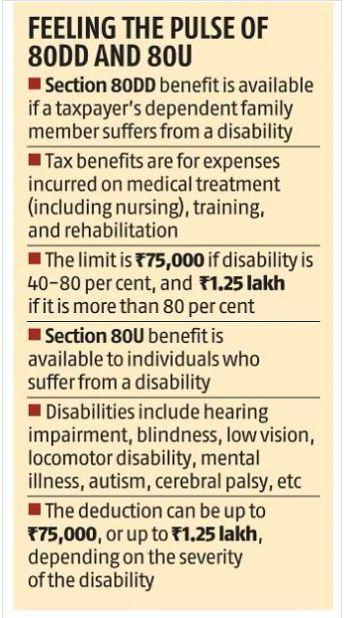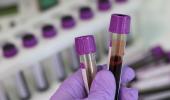You can avail of tax deduction on expenses incurred on preventive health check-ups.
This provision is beneficial to younger people who don't exhaust their Section 80D limit with their health insurance premium.

Most taxpayers are aware of the deductions they can avail of by investing in a variety of tax-saving instruments.
Many, however, may not know that tax deductions are also available on the health care expenses incurred during the fiscal year.
The most well-known tax deduction is available under Section 80D on health insurance premiums.
Both individuals and Hindu Undivided Families can claim it.
The deduction is applicable on a policy bought for spouse and dependent children or parents.
Premiums paid for top-up health plans and critical illness plans are also eligible.
The maximum deduction allowed in a fiscal year is Rs 25,000 for non-senior citizens and Rs 50,000 for senior citizens.
In addition, several other lesser-known tax deductions are available.
Preventive health check-up
You can avail of tax deduction on expenses incurred on preventive health check-ups.
If you have already got the health check-up done, or have scheduled one before March 31, you can get this deduction.
"The maximum deduction you can claim on preventive health check-ups is Rs 5,000. This falls within the overall limit of Rs 25,000 under Section 80D, which also includes medical insurance premiums and health expenditure on senior citizens," says Pratyush Miglani, managing partner, Miglani Varma & Co. (Advocates, Solicitors and Consultants).
How it works: If your health insurance premium is lower than the Rs 25,000 limit under Section 80D, you can use the expense incurred on a preventive health check-up to avail of the entire benefit.
Presume a taxpayer aged 40 pays a medical insurance premium of Rs 22,000.
In addition, he incurs an expenditure of Rs 5,000 on preventive health check-up.
Although his total expense is Rs 27,000, he will be entitled to a deduction of Rs 25,000.
You can claim this deduction, irrespective of whether you have purchased a health insurance policy.
You don't even need to pay by credit card or cheque.
This benefit can be availed of even if payment was made in cash.
However, keep your medical bills and prescriptions handy in case the income-tax department asks for proof.
You can save up to Rs 1,500 via preventive health check-ups, depending upon your tax slab.
Archit Gupta, founder and CEO, Clear says, "This provision is generally beneficial to younger people who don't exhaust their Section 80D limit with their health insurance premium."

Section 80DDB deduction
A tax deduction under Section 80DDB is available for the treatment of specified ailments.
The limit is Rs 40,000 for individuals below 60 years and Rs 1 lakh for senior citizens.
This deduction is allowed only for specified illnesses mentioned in Rule 11DD of the I-T Act.
These include neurological diseases, malignant cancers, haematological disorders, dementia, Parkinson's disease, thalassaemia, and a few others.
Gopal Bohra, partner, NA Shah Associates, says, "Taxpayers can claim deduction under this Section for the treatment of a dependant or for themselves if they are suffering from one of the specified diseases."
A certificate stating that a person has the disease must be obtained.
Sameer Jain, managing partner, PSL Advocates & Solicitors, says, "Details that need to be mentioned in the certificate include name, age, ailment, and details of the specialist treating the patient. The 2015 amendment, in fact, has made it easier to claim this deduction since only a certificate is required now."
"Only specialists as specified by the I-T department can certify to the disease and treatment under this Section, except in cases where the treatment is being done at a government hospital, where any full-time specialist holding a postgraduate degree in general or internal medicine can issue such certification," adds Miglani.
Feature Presentation: Aslam Hunani/Rediff.com











